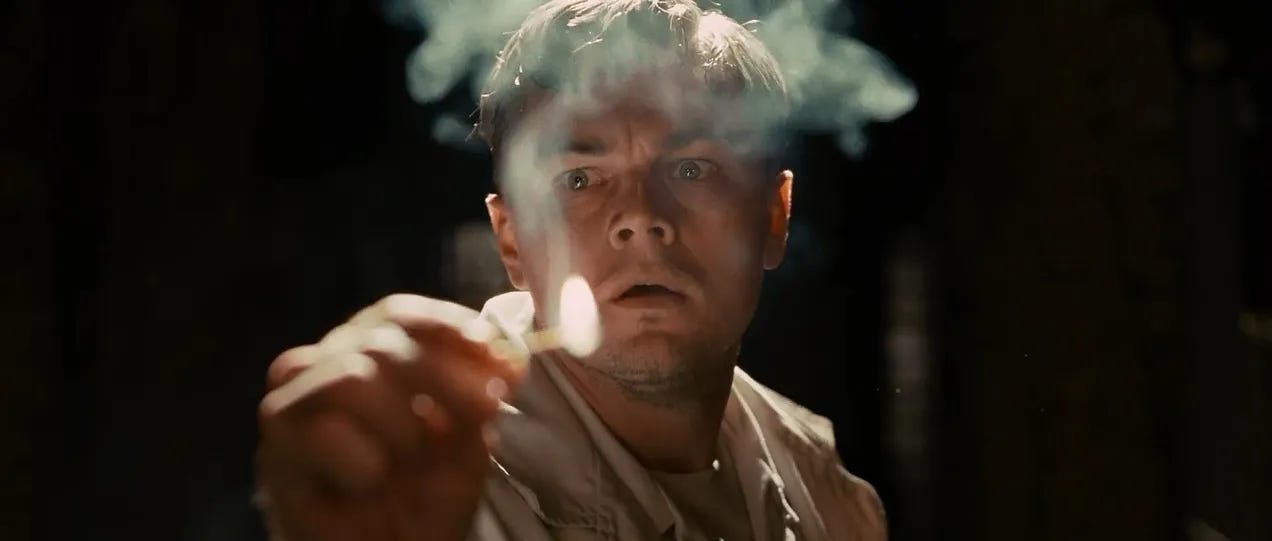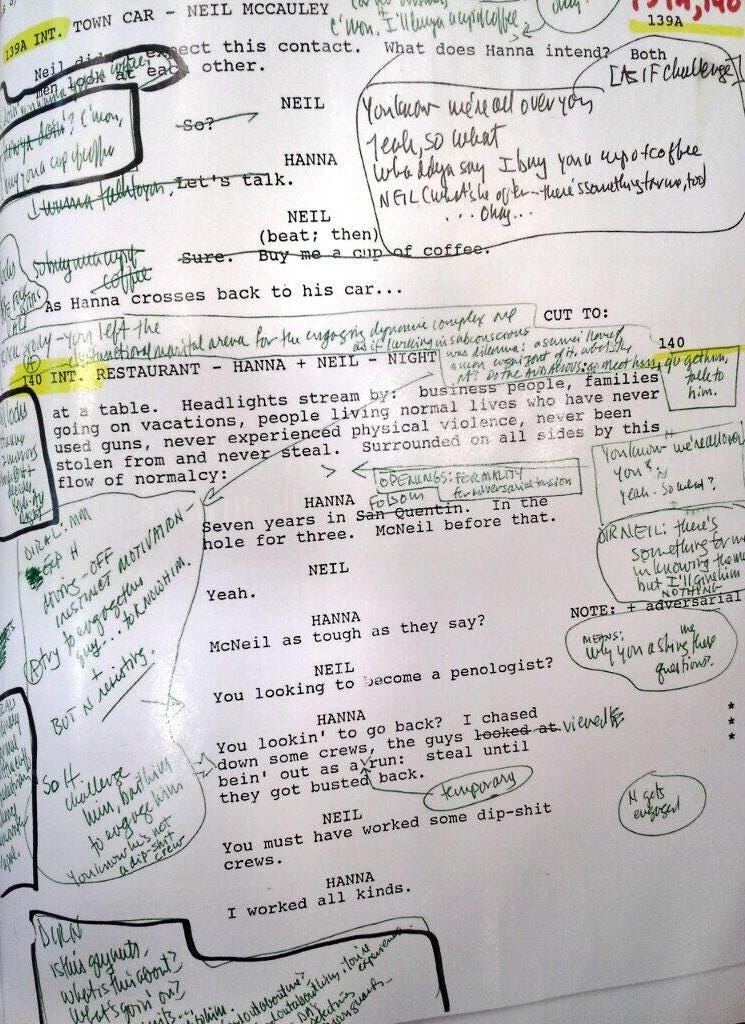The wrong feedback can drive a screenwriter insane
The film business means collaboration and experienced collaborators give you the kind of feedback that empowers you on your crazy journey to the shooting script.
Who are your collaborators? They’re producers, managers, agents, directors, actors - their feedback comes in various forms and stages and is always useful (even crappy feedback will give you the opportunity to question your assumptions once more).
First draft stage
I hunker down. After setting the frames (expose, treatment) with the producers, I lock myself in the cave and write. After completing the first draft (which usually really is a second or third draft until I’m happy with it) it goes for feedback to my wife and to trusted friends (and that includes my agent). The official collaboration of “the business” really only begins after this stage. Collaborating, getting that feedback of every kind, is often hard for writers. I’ve figured out an excellent way to handle it - more about that here: Want to keep your sanity? Separate!
Second draft stage
At this stage, the great producers and directors will give you broad strokes and trust. They know that the second draft is early forming stages of what will eventually become a shooting script. Great collaborators will come back to you with things about major elements, structure and character arcs - they will not even think about giving you details like “On page 12 he should sneeze” and “Scene 132 - add ‘Honey’, when she says ‘I love you’.”
Pros know that at this stage a great many things will, without a shred of doubt, change. Delivering a long list with details is, in fact, a great way to set up everyone for major discontent. The writer will be locked in far too many constraints and, if he does what he should do and focus on getting the big picture right before zooming in on the detail, he’s bound to disappoint the collaborators as all their long, detailed feedback won’t even remotely relate to the new draft anymore.
Third and later draft stages
I’ve seen completed second drafts nailing structure and characters. It happens, not often, but it happens. If all the big stuff’s solid, then by all means bring on the details - location changes, scene adjustments, dialogue, beats. But more often you need the third draft to get to the place where all are on the same page regarding structure and characters. Until you get there - keep that feedback broad-stroked.
Overall collaborators should remember to set the course to begin with and to steer the journey in the right direction - then trust the writer find that mysterious island called “brilliant friggin shooting script”. Course corrections need to happen along the way but they should never be micromanaging ones until you’re navigating the final pre-shoot reefs.
If you’re something in the feedback loop, and whether your on the giving or the receiving end of feedback, hope this helps a bit along the way.
Cheers
D








